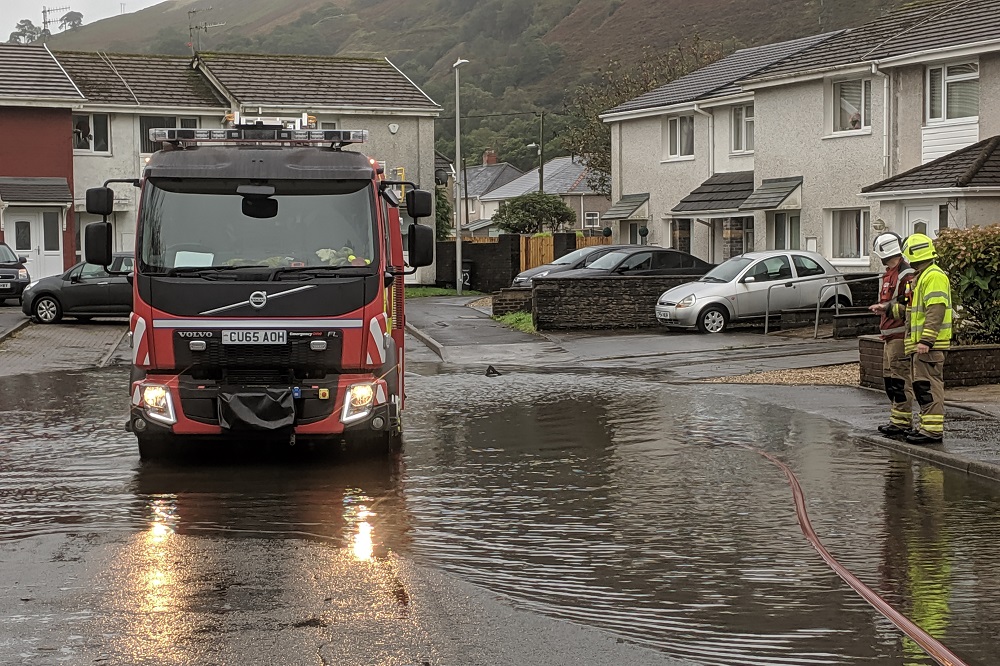Welsh Water director says reducing surface flooding is its biggest challenge

Richard Youle, local democracy reporter
Long-term plans to remove surface water from the sewer network are being drawn up by utility chiefs, but they stressed it has to be affordable.
Steve Wilson, Dwr Cymru/Welsh Water’s managing director of wastewater services, told a meeting of Swansea councillors and other public sector representatives that doing so was its biggest challenge in the coming years as climate change led to periods of more intense rainfall, which causes surface water flooding.
During these events, a mixture of surface water and sewage is frequently sent through storm overflow pipes into rivers and the sea, affecting water quality. In extreme cases, it can overwhelm the network and flood homes and businesses.
Mr Wilson said the “dreaded storm overflows are operating more frequently than we would like”.
He added that there was now a requirement for water companies in Wales and England to plan long-term to manage drainage and wastewater, as they have done for decades in resource terms, to ensure there was enough water to go round and accommodate growth.
He said “green infrastructure” – planters and trees, for example – and other sustainable drainage methods were the only way surface water could be absorbed, as removing Wales’ network of storm overflow pipes was not economically feasible.
Affordable
“All of this has to be put on the water bill,” he told the Swansea public services board joint committee meeting. “It has to be affordable.”
Mr Wilson said Wales had 2,300 storm overflow pipes, and that removing them would add £11,500 to all of Dwr Cymru/Welsh Water’s 1.3 million customers’ bills.
He said rainfall patterns were changing. Wales, he said, was usually on the receiving end of one, two or three one-in-50-year rainfall events annually.
He added: “We are heading for four or five, and climate change modelling tells us six or seven by 2050.”
He said recent upgrades in Swansea from the High Street railway station to the city centre had, despite a “vastly improved city-scape”, resulted in more surface water being generated than before.
He said a public consultation on the new drainage and wastewater management plan would start next month.
No members of the committee asked Mr Wilson questions when given the opportunity to, but chairwoman Cllr Andrea Lewis said it could share the presentation with stakeholders.
The UK Government said last month that water companies would face strict limits on when they could use storm overflows and must completely eliminate the harm any sewage discharge caused to the environment.
Support our Nation today
For the price of a cup of coffee a month you can help us create an independent, not-for-profit, national news service for the people of Wales, by the people of Wales.







How strange to think of planters and trees to absorb rainstorm flooding. The solution is normally to increase soakaway into soil and deeper ground – diverting roads and urban runoff out of the sewer. Perhaps the reporter got the wrong end of the stick. Welsh Water have been slack in not pressing Councils to retrofit sustainable drainage and run-off diversion schemes. Can Welsh Water not require this in LDPs and in redevelopment schemes?
Yes, there should really be a scheme to encourage householders to ensure that their rainwater pipes drain to soakaways and not to the general sewer. This was a requirement for all new houses in Cheshire for a number of years, so I was surprised to find that our house in Aberystwyth drained into the sewer.